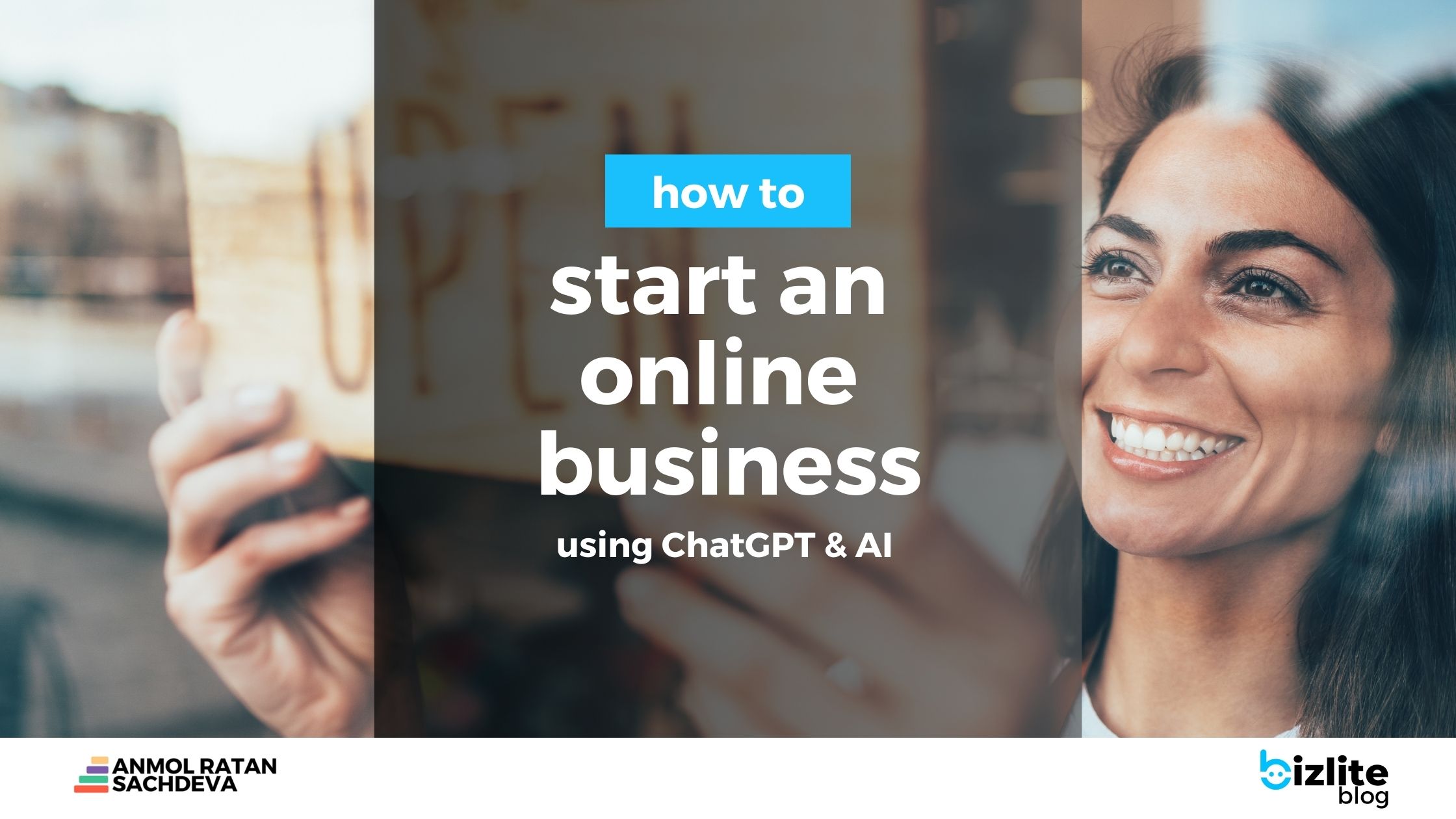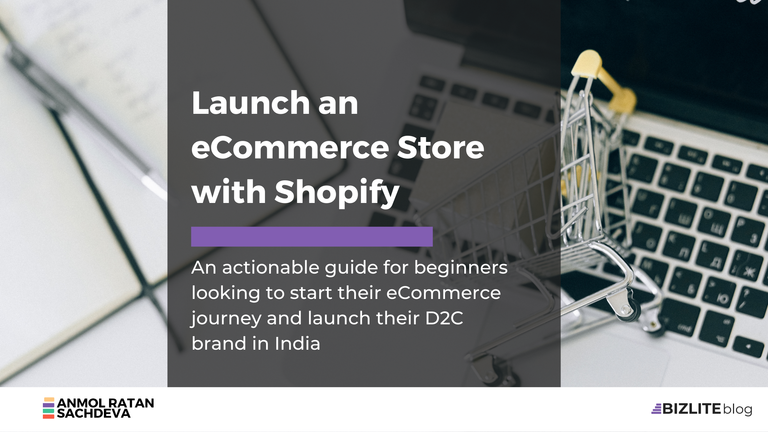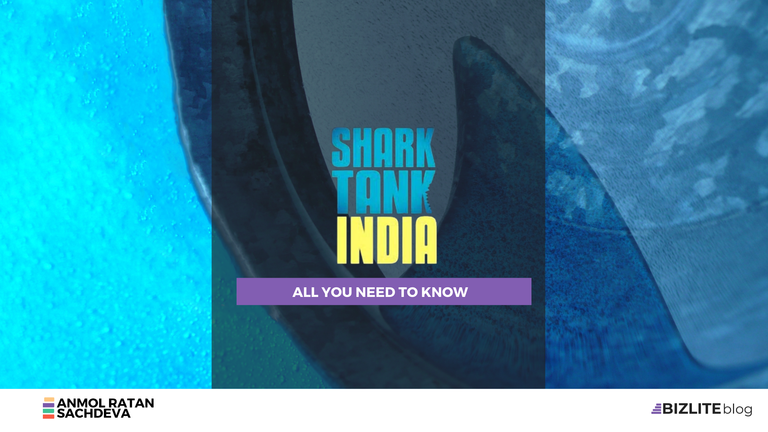How to Start a Business Online Using ChatGPT & AI?

When I started my online journey, I didn't even have a laptop, the world wasn't ruled by 'influencers' selling online courses to 'riches', and there wasn't much chatter about freelancing, or online businesses as such. It took me 10 years, but I feel today anyone can start an online business and defeat the rat race in less time, using fewer resources, and without worrying about funding or investment.
All it takes is a just a single step....
In this blog, I will try to structurally share how to start an online business with limited resources using AI and ChatGPT. You don't need any fancy gadget, expensive tools, or even a mentor. All you need is just a focused mindset and a commitment towards an idea and half the job is already done.
Table of Contents
Before we begin, here's some insight into why I am writing this in a world where everyone's hell-bent on teaching you how to start a business online....
I was on Twitter a while back and came across this thread:
The owner of the account is a 'marketing mogul' who hit $1 trillion in sales. According to his survey:
88% of new entrepreneurs couldn't find the right info online/didn't know the right direction to start
I came across the same problem multiple times during my consulting and marketing journey, but I am no big gun.
I am just a normal 'middle class' guy from India, just like you, who wants to help a few fellow aspreneurs (if that's even a term for aspiring entrepreneurs). Mind you, I am not catering to wannapreneurs, who just 'wish to start'. I am here for the ones who genuinely want a 'way out' and don't have a cushion to 'fall back' on.
I was waiting to write this for about 3 years now but ChatGPT made it easy for me to claim that 'anyone can implement what I say'. So, here I am with a simple, no non-sense guide.
Let's begin.
Find a Business Idea
Goes without saying - no business can start without a business idea. It doesn't have to be a 'revolutionary' or 'unique idea'. It should simply cater to a need or serve a pain point.
Too much jargon? Let me explain it in the simplest way possible
Your idea doesn't have to be super special or never been done before. It just needs to be something that helps people or gives them something they need. Let's say people need a better way to clean their houses and save time. Your business idea could be to make a special cleaning tool that makes cleaning easier and faster. That way, you're solving a problem and making people's lives better. So, when you start a business, you should think about what people need or what problems you can solve for them. That's what a business idea is all about!
Researching Profitable Niches
To begin the process of identifying a business idea, it's essential to conduct extensive research to discover profitable niches. A niche refers to a specialized segment of the market that caters to a specific group of customers with unique needs and preferences. By targeting a niche market, you can differentiate yourself from broader, more competitive markets and establish a strong position within your chosen industry.
Start by brainstorming areas of interest or industries that you are passionate about. Consider your skills, expertise, and personal experiences that could be leveraged in a business context. Once you have a few ideas, dive deeper into researching each potential niche. Look for market trends, emerging industries, and consumer demands that align with your interests and expertise. Explore online forums, social media groups, and industry publications to gain insights into the problems and pain points faced by potential customers in these niches.
Assessing Market Demand and Competition
Once you've identified a few potential niches, the next step is to assess the market demand and competition within each niche. Understanding the size of the target market and the demand for products or services in that niche is crucial for determining the viability of your business idea. Conduct market research to gather data on the potential customer base, their demographics, purchasing behavior, and preferences.
Utilize keyword research tools to identify the search volume and competition level for relevant keywords within your chosen niche. This will provide insights into the level of interest and demand for products or services in that market. Additionally, analyze the competition within the niche. Identify the major players, their offerings, pricing strategies, and unique selling propositions. This analysis will help you identify gaps and opportunities that you can leverage to differentiate your business and attract customers.
Choosing a Business Model
Once you have identified a profitable niche and assessed market demand and competition, it's time to choose a business model that aligns with your goals and resources. There are several common online business models to consider:
E-commerce: This model involves selling physical products online. You can either create your own products or source them from suppliers and sell them through your own online store or platforms like Amazon or Etsy.
Digital Products: This model revolves around creating and selling digital products such as e-books, online courses, software, templates, or multimedia content. Digital products offer scalability and the potential for recurring revenue.
Dropshipping: Dropshipping is a popular business model where you act as a middleman between the customer and the supplier. When a customer places an order on your website, you forward the order to the supplier, who then ships the product directly to the customer.
Affiliate Marketing: In this model, you promote other companies' products or services and earn a commission for every sale or lead generated through your referral. Affiliate marketing can be done through a blog, website, or social media platforms.
Service-based Business: This model involves offering professional services or expertise online. Examples include consulting, coaching, web design, digital marketing, or virtual assistance. Service-based businesses often require specialized skills and knowledge in a particular field.
When choosing a business model, consider factors such as your budget, skills, resources, and the level of involvement you desire. Each model has its own pros and cons, so it's important to select one that aligns with your strengths and long-term goals.
Post on Social Media
Utilize Free Content Ideas
Use ChatGPT to Create Content
Use Prompts Library
Record Traction & Feedback
To start market research
If audience likes, start a small business profile on IG (blog )
Validate Business Idea
Start Posting Regularly
Plug content Ideas again with Publer aff
Launch a Business or an Offline Store
Shopify Blog
Keep Improvising
Tools That Will Help You Get from Zero to One
- ChatGPT: Free version will work;
- Business Idea Library: In case you don't have an idea yet;
- Content Ideas Library: To get closer to your audience;
- Social Media Scheduler: If you want to automate posting;
- Website or eCommerce Platform: Here are some cheap ways to launch a website
Additional Steps to Start a Business Online
Plan for Marketing
Perform Competitive Research
Find Ways to Finance Your Business



